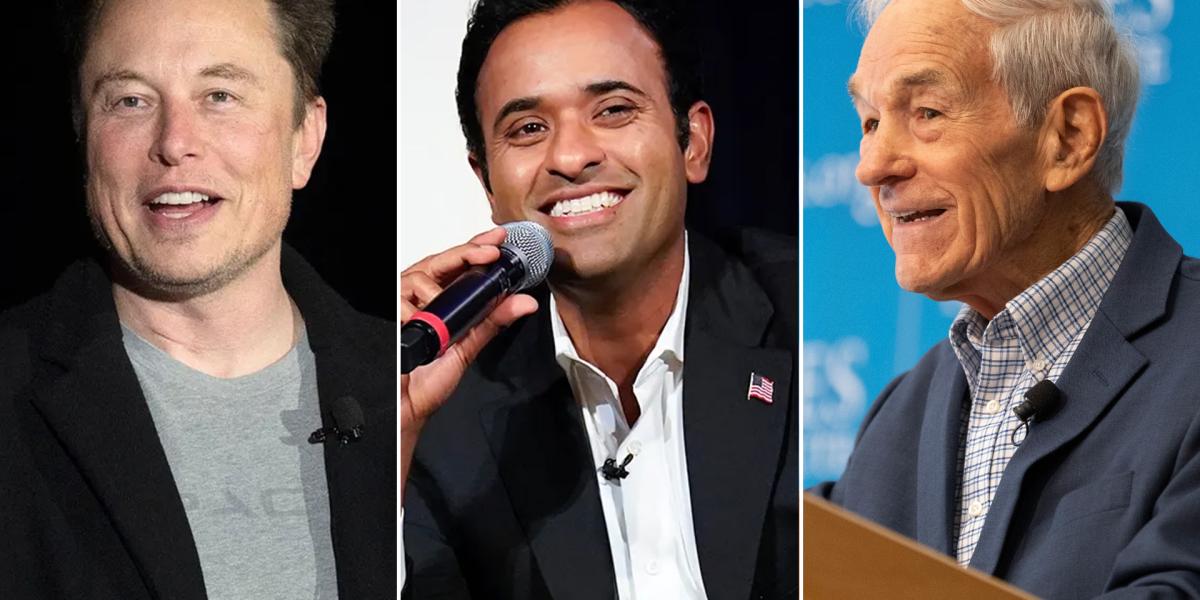Hold Off on Shorting DOGE—For Now
President-elect Donald Trump, upon returning to the White House, intends to establish a new initiative called the Department of Government Efficiency (DOGE), which will be led by entrepreneurs Elon Musk and Vivek Ramaswamy. Inspired by historical government reform movements such as Ronald Reagan’s Grace Commission and Bill Clinton’s “Reinventing Government” initiative, DOGE aims to explore and implement strategies for reducing government spending and regulations. The team will focus on scrutinizing existing federal regulations, particularly in light of recent Supreme Court rulings that assert agencies require congressional authorization for major economic regulations and that they cannot self-interpret their authorities. Musk and Ramaswamy posit that many federal regulations may be unlawful and thus could be revoked through executive orders. Their plans also include a push for a smaller federal workforce by encouraging remote employees to work in offices and relocating agencies from Washington, D.C., to regions more relevant to their functions.
The proposal for DOGE has garnered a mix of excitement and skepticism. Critics, particularly those who advocate for limited government, express doubts about the reliance on politicians, who may be disinclined to pursue substantial cuts due to institutional interests. Writing on the topic, one critic suggests that even if DOGE fulfills its goals, it may still fall short of what is necessary to avert impending economic and societal crises. While the initiatives proposed by Musk and Ramaswamy resonate with some observers, others caution that a greater systemic overhaul is required to truly address the challenges facing the nation. Nevertheless, there is a distinct element of cultural opportunity woven into the DOGE initiative that merits consideration, as significant change is often catalyzed during times of crisis.
Historically, radical political and economic changes in America have been precipitated by moments of crisis when the public’s tolerance for the status quo wanes. During non-crisis periods, people may desire change yet hesitate to embrace it when confronted with the potential upheaval it entails. However, crises create conditions conducive to widespread acceptance of transformative measures. For example, the severe economic and social changes during World War I were made possible largely due to the nationwide fear and instability of that era. Similarly, the expansive government interventions during the Great Depression, the post-9/11 security enhancements, and the economic ramifications following COVID-19 reflect how crises have fostered significant shifts in public policy and governance. Currently, various domestic and international tensions suggest that further crises loom on the horizon, with implications that could empower the political elite to undertake significant changes in governmental control under the guise of addressing urgent issues.
While crises can engender opportunities for recovery and reform, they can also validate and enable the expansion of state power, often leading to unintended consequences. For instance, the political establishment frequently employs propaganda to influence public perception, assuring citizens that more government intervention is needed to control crises. However, just as crises may facilitate increased control, they can also galvanize public awareness and demand for accountability, pushing back against state overreach. The analogy of an alcoholic hitting rock bottom illustrates this concept well—while personal crises may lead individuals to relapse, they can also serve as catalysts for transformative change and commitment to improvement.
Operating within a possibly unfavorable political landscape, DOGE’s success likely hinges on the convergence of crisis and public sentiment. A future crisis could create an environment where the public recognizes government failings and resists giving additional power to those who contributed to the problem in the first place. Thus, counteracting the prevailing narratives churned out by the political class is essential for fostering public understanding of the sources of crises and for inspiring actionable solutions that promote accountability in governance.
Despite the daunting challenges, the introduction of DOGE has ignited public interest in governmental reform. The enthusiasm surrounding Musk and Ramaswamy’s project signals a ripe opportunity for shifting public discourse on governmental efficiency and public spending. Drawing from libertarian ideas, the pair’s engagement with notable figures like Ron Paul positions the initiative as a rallying point for advocates of reduced state intervention. Their plan to launch a podcast further aims to sustain momentum and public interest in the initiative, potentially serving as a platform for educating citizens and fostering dialogue about the inefficiencies within the current government structure. Although public awareness of the underlying issues remains insufficient for broader reform, the sustained attention for DOGE indicates a growing impatience for reformist action, suggesting that opportunities for making substantive changes may be closer than previously perceived.
Share this content:












Post Comment